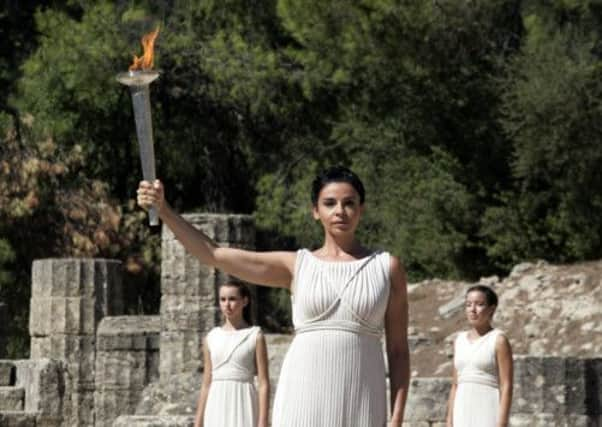President says Olympic values ‘will be respected’


Russian president Vladimir Putin signed a law in June making it illegal to give under 18s information about homosexuality. The move has been widely condemned and has led to calls for a boycott of next year’s event.
Yesterday – on the day the Sochi 2014 Winter Olympic torch was lit in ancient Olympia – Bach, a 1976 gold-medallist for Germany in fencing, said: “The position of the IOC is very clear. The task of the IOC has to be that the Olympic Charter is fully respected in the Olympic Games and for all Olympic participants.
Advertisement
Hide AdAdvertisement
Hide Ad“We have the assurance of the highest authorities in the country. Yesterday I was sitting with a Russian delegation here in Olympia and they assured me once again that the Olympic charter will enjoy full respect in the Olympic Games.
“This is what the IOC is about. We can not, on the other hand, impose laws on a sovereign country outside the Olympic Games.”
The Fundamental Principles of Olympism laid out in the charter stipulate: “The goal of Olympism is to place sport at the service of the harmonious development of humankind, with a view to promoting a peaceful society concerned with the preservation of human dignity.
“Any form of discrimination with regard to a country or a person on grounds of race, religion, politics, gender or otherwise is incompatible with belonging to the Olympic Movement.
“Belonging to the Olympic Movement requires compliance with the Olympic Charter and recognition by the IOC.”
That appears at odds with the Russian anti-gay law and the issue caused controversy at last month’s athletics World Championships in Moscow.
Russian athlete Yelena Isinbayeva labelled Swedish high-jumper Emma Green-Tregaro “disrespectful to our country” for protesting against the law by painting her nails in rainbow colours while United States runner Nick Symmonds dedicated his world 800 metres silver medal to his gay and lesbian friends.
Bach defended athletes’ right to express their views, saying: “There is the freedom of speech, it exists and it applies to the athletes. This is what the IOC will ensure. On the other hand, we have to draw the fine line between freedom of speech and demonstrations.
Advertisement
Hide AdAdvertisement
Hide Ad“From my own experience, I know that, as an athlete, you need to be protected from being drawn into political controversies. We can not have the Olympic Village being a marketplace for demonstrations for all the political issues in the world.
“The approach of the IOC and the Olympic Games is a different one. We want, with our values, to set an example that people can live peacefully together despite all political controversies, despite all differences which may exist.”
On a hot autumn day, actress Ino Menegaki, playing the high priestess, yesterday lit the Winter Olympic torch to herald what will be the longest torch relay for any Winter Games, including a trip to space.
The Black Sea resort of Sochi, the first Russian city to stage a Winter Olympics, will receive the flame on 5 October after a short relay in Greece, to kick off a 123-day odyssey culminating at the opening ceremony on 7 February. After leaving Greece, the flame will travel to outer space, the bottom of Lake Baikal, the North Pole and Europe’s highest peak in the mammoth run across the vast country, carried by a record 14,000 torch-bearers.